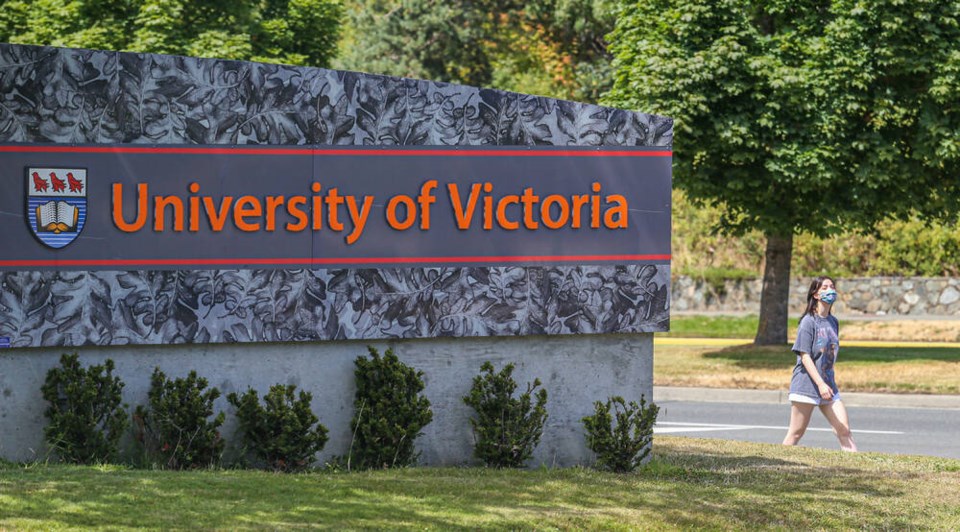An individual on campus at the University of Victoria who was diagnosed with tuberculosis is under treatment and no longer infectious, says Island Health.
UVic, which identified the affected individual only as “a member of the campus community,” said the individual isolated after the diagnosis.
Island Health medical heath officer Dee Hoyano said the individual likely contracted the disease outside Canada. There typically aren’t more than 20 to 30 cases of TB on Vancouver Island each year, of about 300 in B.C.
“The majority of folks who develop TB disease have actually been exposed to TB outside of Canada … and they are diagnosed when they are here,” Hoyano said.
Areas with a greater incidence of the disease include Africa, Asia and Latin America.
The health authority is contacting about 185 people determined to be at a higher risk of exposure because of spending a fair amount of time in the same space as the infected individual. It’s recommended that they be screened for TB, Hoyano said.
UVic said in a statement posted to its website that anyone who did not receive an email does not need to be screened.
Screening is planned for the last week of November, said Hoyano, who said it’s ideally done at least eight weeks post-exposure.
Tuberculosis, an airborne infectious disease that most often affects the lungs, is treatable and curable, according to the B.C. Centre for Disease Control.
The vast majority of people infected with TB will never develop symptoms, Hoyano said, and those individuals who are infected in their lungs and go on to develop the classic symptoms of the disease — cough, coughing up blood, fever, weight loss — typically will not do so for months and, in some cases, years.
“We’re trying to catch people early to see if they’ve been infected to treat them so that they don’t go on to develop disease or any symptoms,” Hoyano said.
Anyone infected through the case at UVic will not have symptoms and therefore won’t be contagious, so they don’t have to take precautionary measures such as wearing a mask or staying at home, said Hoyano, who doesn’t anticipate that many people have been infected.
“But we do know that if we can pick it up through the screening test, and we can offer them treatment, then that eliminates the likelihood that they’re going to go on to develop TB disease.”
Hoyano said when someone is sick with TB, testing is done to determine the level of bacteria they have in their lungs, which determines how infectious they are. She would not say whether the affected individual was hospitalized or the severity of their infectiousness.
“They’re infectious enough that we are concerned about screening other people,” Hoyano said.
The university said in its statement that it’s following the advice of Island Health to respond to the situation and to ensure all steps are being taken to protect the health and safety of students, faculty and staff.
In February 2009, two UVic students were active tuberculosis diagnosed, causing health officials to issue tuberculosis testing notices to 320 staff and students.
The two affected students were related and contracted TB outside campus settings, the university said at the time.



